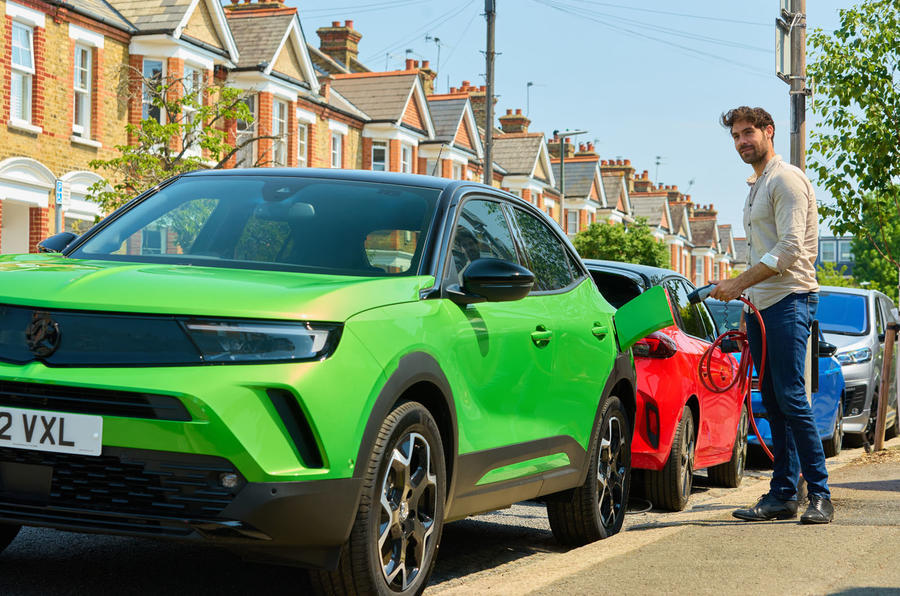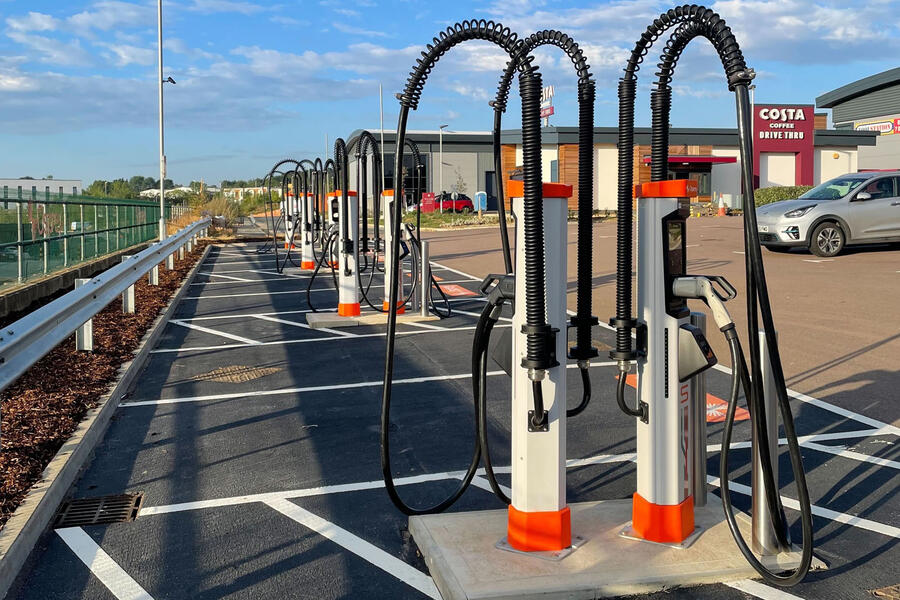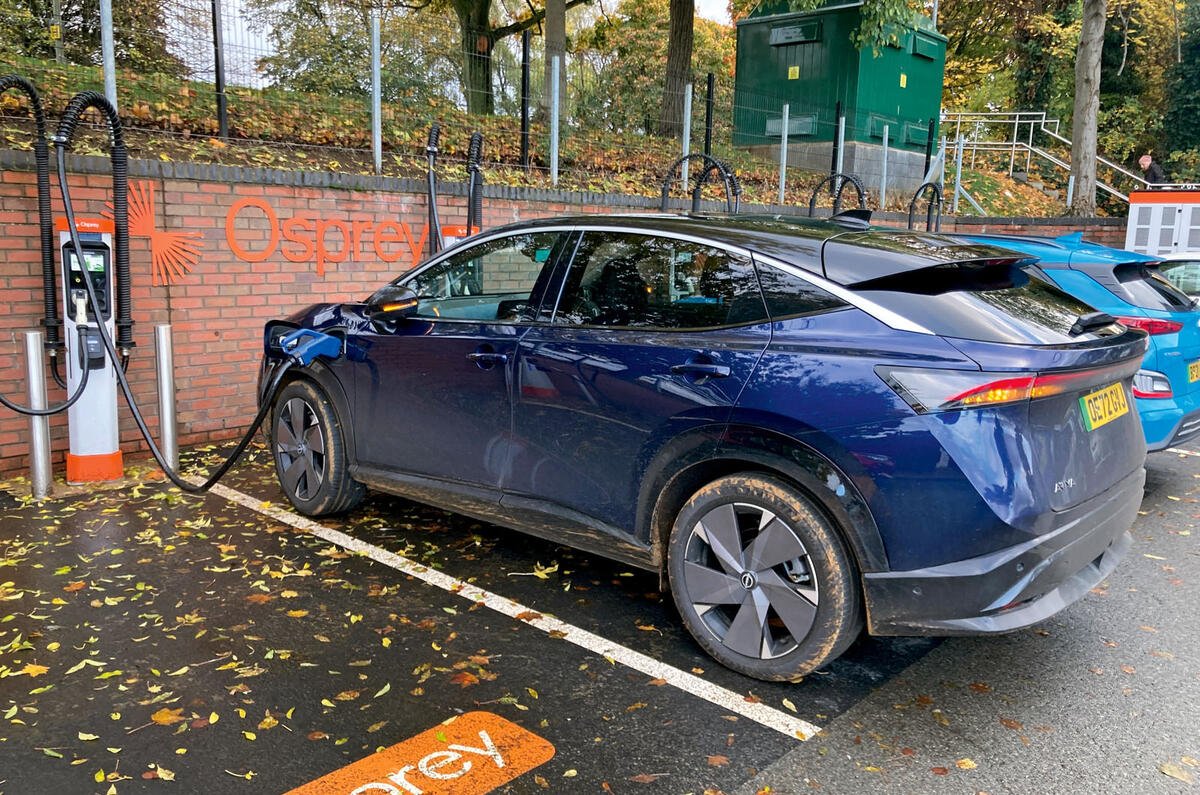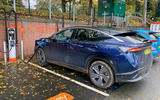The installation rate of public electric vehicle chargers in the UK will grow unprecedentedly in 2024, according to the CEO of charger provider Osprey.
Ian Johnston – who is also the chairman of industry body ChargeUK – told Autocar that the rate of installations is “going to make 2023 look like a quiet year”, pointing to the delivery of Local Electric Vehicle Infrastructure (Levi) funding to local authorities.
According to data from charger mapping service Zap-Map, there were 53,906 public chargers across the UK at the end of December 2023. That represented a 45% increase year-on-year.
The Levi scheme was announced in March 2022, promising £450 million in funding for local authorities to install chargers in residential areas. The first payments were made in September 2023.
Johnston said: “We're going to start to see the opening of the floodgates for local-authority chargers.
“With the Levi scheme, there have been delays in the past, but there’s a real focus now to get those projects moving; to get the local authorities the resources they need in terms of having project staff on the ground to get these projects developed and delivered.”
His prediction comes after an August 2023 investigation by Vauxhall that found that more than two thirds of UK councils had yet to install any kerbside EV chargers.
Of the councils that responded to Vauxhall’s investigation, 45% stated that they had no plans to install chargers by the end of 2023.

Johnston added: “When the Levi scheme properly gets motoring later this year, then you’re going to see quite a shift. You’re going to see the floodgates open and thousands upon thousands of on-street chargers coming.
“That part of the market hasn't been able to move quick enough because there have been the cogs of the Levi machine. The approvals and the tenders obviously take longer than a private firm, who can run a short tender between three or four rapid [charger] providers, make a choice and get going straight away.”
Although Osprey’s focus is on rapid charging hubs, rather than residential solutions for local authorities, Johnston cited the large number of chargers “in the pipeline” as the driving force behind the increase that he believes will take place this year.
He said: “From Osprey’s perspective, in the five years between 2018 and 2022, we installed 400 chargers. Last year alone, we did 600. So in terms of the ramp-up, you can see the rate of growth there.
“We're going into this year with more projects in our development pipeline than we've ever had before. The rate of roll-out for Osprey and for all of our peers is going to be greater than you've ever seen before.
"I don't know where the numbers will be at the end of the year, but it's going to make 2023 look like a quiet year.”

Johnston also acknowledged that a lack of confidence in the public charging infrastructure is a barrier for many looking to make the switch to an electric car.
He believes it to be an issue of “optics”, with the limited visibility of residential charging, as well as larger ultra-rapid hubs, raising doubts about the infrastructure’s development.
He said: “Even if you're driving a diesel, if you drive into a motorway services and see a great brand-new charging hub, it shows you that you don't need to worry. You don't need to believe the headlines about there not being enough charging, because you've seen for yourself.”
Johnston partly blamed the public’s lack of confidence on the politicisation of motoring and the environment in the run up to the next general election, referring to the subject of EV charging as “bait”.
“I think there will be more of that in 2024 in the run up to the election,” said Johnston. “But the numbers talk for themselves. Everyone can see there's more and more chargers, and the rate of roll-out is increasing every month”.












Join the debate
Add your comment
Couldn't be about to issue a load of shares to raise funding, could he?
I live in Yorkshire, and there are a huge number of terraced houses around here. Why would anyone living in one want an EV, when they cant charge at home, and public chaging is more than buying heavily taxed ICE fuel?
There are 3 chargers near here i regularly drive past, 2 at a Shell petrol station, and 1 in a local Aldi car park. They never seem to be in use when ever i drive past. I dont think there is a shortage of public chargers here, i think there is just very little interest in EVs from the public.
I see quite a few EVs, presumably Company cars, about and low tax has helped there, and a drive to park on and charge on at night no doubt too, but the general public dont get any financial break on an EV unless they can charge at home (the free road tax really isnt much against higher insurance and depreciation costs). And really you need a drive for that.
I can see that more company car drivers might choose EV if there were more chargers for high mileage drivers, but to get the public interested there needs to be a major change in the price of electricity to make it always cheaper than petrol.
And why is Electricity SO expensive? Half your fill up at the petrol pump goes to the government, so electricity is already twice the real price of petrol, and even then, its often cheaper to drive on petrol than volts unless you fill up with Economy 7.
There are just so many reasons not to go EV yet, and the lack of chargers really isnt one of them as far as i am concerned.
What's the point if they're too expensive to use?
The pricing model is a little bit higher than diesel, and that has been quite clever as most people will charge at home and that offsets the cost of the few times a month or year they charge on the road.